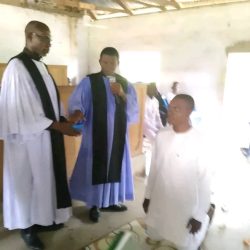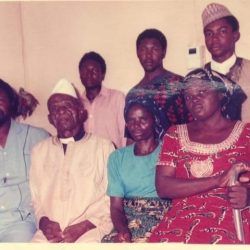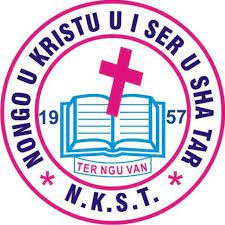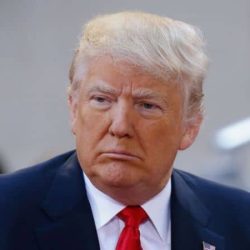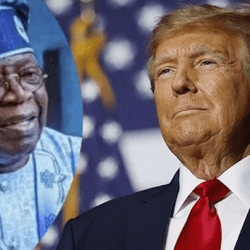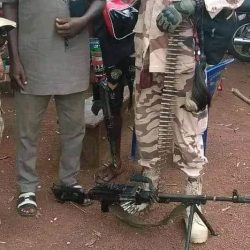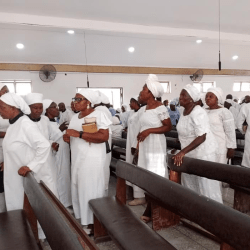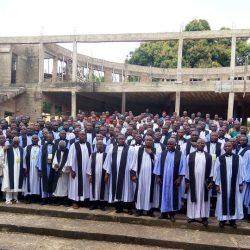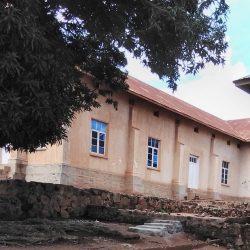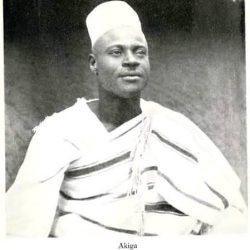
Reverend Pastor N A Adure, President of NKST Church
Adure, before his appointment in November 2023 as NKST president, was the Vice President of NKST and pastor of NKST Church Anyiin, Logo LGA, Benue State, Nigeria.
Vice President
• Rev. E I Azenda
NKST GUNGUL
General Secretary
• Rev. T A Targba, Ph.D
Assistant Secretary
• Rev. C T Anger Ph.D
NKST KADUNA
Committee of Synod, Executive Member I
• Rev. AKpen Leva, Ph.D
NKST IORTYER
Member II
• Rev. M M Liam Chia
NKST IMANDE
Member III
• Rev. Prof. Mbachirin







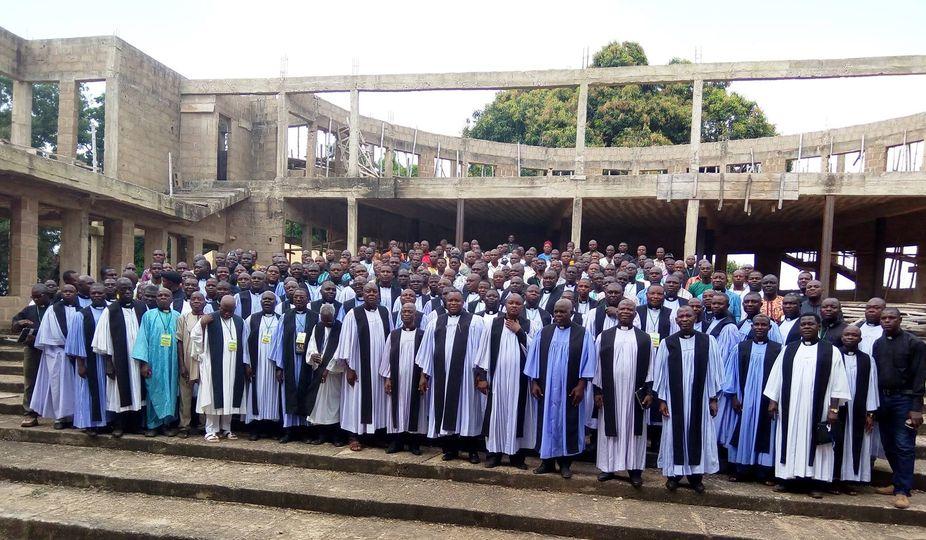
NKST Church
NKST (Nongo u Kristu u i Ser u sha Tar) or Universal Reformed Christian Church (URCC) is a reformation, presbyterian, protestant church that was established on 9 January 1957 in Mkar, Benue State, Nigeria after years of missionary activities that began from Dr Karl Kumm’s missions ministry called Sudan Pioneer Mission later renamed Sudan United Mission (SUM).
The word Sudan in this context refers to what was known as the Sudan Belt, the sub-Saharan area north of the equator – from Senegal in the west to Sudan in the east.
Dr Karl Wilhelm Kumm (1874-1930), a well educated and widely traveled German with wife Lucy Evangeline Guinness alongside family members, friends and supporters went into missions work full time through SUM, the ministry they founded. NKST started as a result of their efforts.
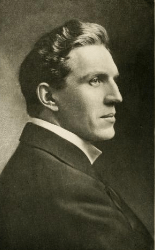
NKST is one among the many churches that emerged after the Martin Luther reformation movement.
Its teachings have a strong undertone on Bible doctrine. Members are known for strict observance of the teachings.
It has more than each of these figures: 1 million members, 500 ordained ministers, 700 evangelists, 60 zones called classis, 372 consistories and 1000 churches.
Members must enroll for a compulsory 3 year Bible class, get baptised and take holy communion.
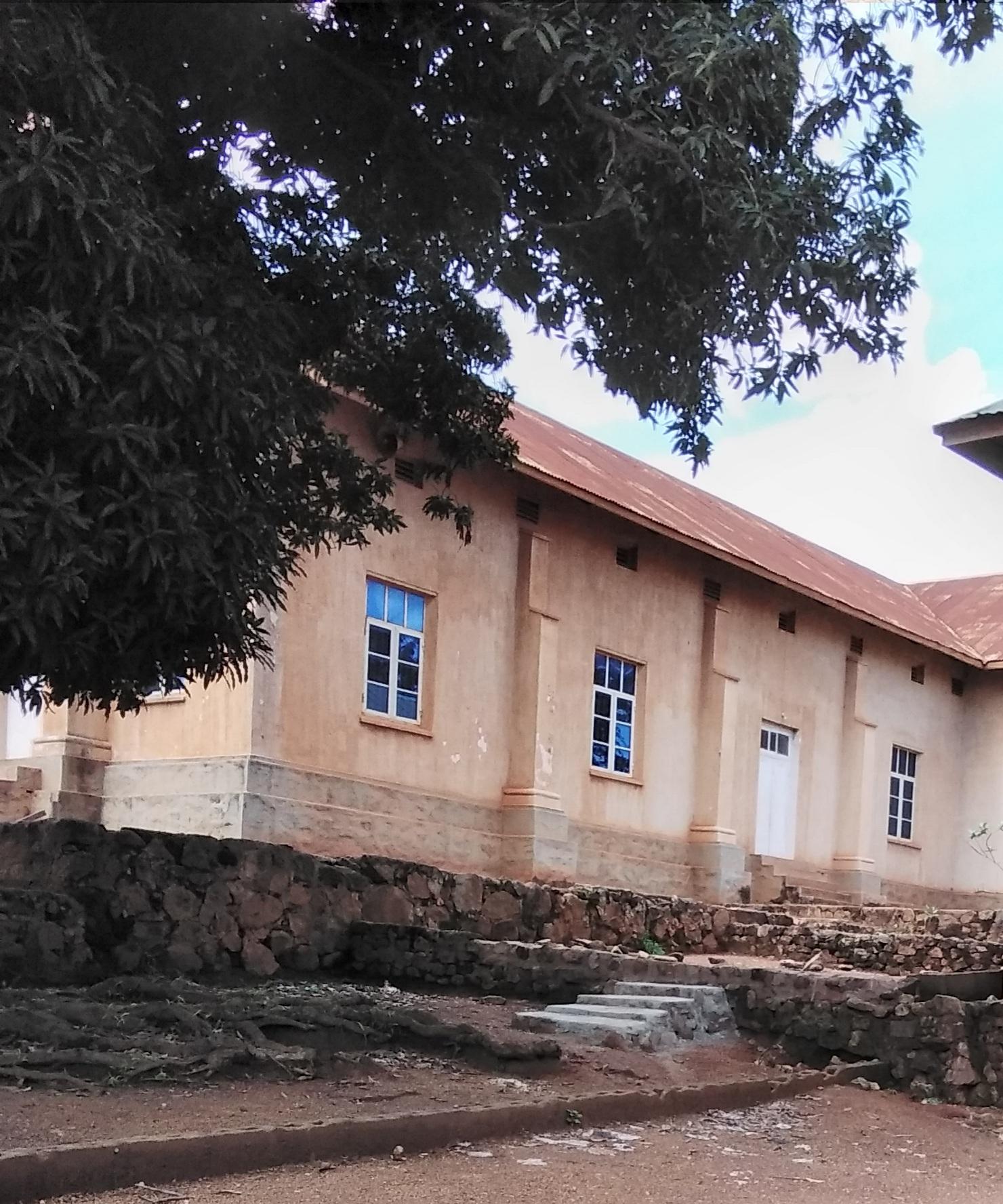
NKST was first introduced in Sai, Benue State on 17 April 1911 by Pastor Carl Zimmermann of SUM.
This was after, not less than, 3 years of SUM interaction with Tiv people, their way of life, language, trying to assimilate with them and all that.
Sai is in Katsina Ala LGA, Benue State. It’s near Zaki Biam town and Taraba State.
Benjamen Akiga Sai, the son of Chief Sai, became the first indigenous member and pastor of the church.
On 9 January 1957 NKST was officially established.
In 2014 the church changed its name from Nongo u Kristu ken Sudan hen Tiv (Church of Christ in Sudan among the Tiv) to Nongo u Kristu u I Ser u sha Tar (Universal Reformed Christian Church).
This happened after decades of concern by certain persons about the name and its implications. The name was seen as a hindrance to some because it implied the church was only meant for Tiv people. The new name indicates an all embracing ministry.
The church has a pastor/elders leadership structure. The topmost leader is called president. The president presides over a council of pastors and nominated elders together known as synod. Frequent references to synod decisions make some people to nickname the church as Sonodi and its members as Mbasonodi meaning synod people.

It has a presbyteral system of church leadership. NKST’s Synod is the highest decision-making body of the church. It’s presided by the president of the Synod also known as NKST president.
The Synod has a seven-member executive council made up of:
President
Vice-president
General secretary
Assistant general secretary
and three appointed members.
As a principle, NKST doesn’t emphasis money. This makes some to think that the church is not as rich as some pentecostal churches that don’t have members up to their’s. However NKST doesn’t lack. The church has beautiful church auditoriums, a theological seminary, university, over 20 other schools, hospitals, a publication house and lots more.
Its headquarters is in Mkar, Benue State, Nigeria with branches in Abuja, Lagos, Port Harcourt, Kano among other places.

A large number of members are Tiv and Etulo people of Benue state. The members include a former Nigerian minister of Police and later Sports, Stephen Akiga Sai. The former minister’s father, Benjamin Akiga Sai was NKST’s first convert and first indigenous pastor.
Also on the list of members is a former Benue State Governor, Gabriel Suswam.
A Benue Governor as at 2022, Samuel Ortom, who is a member of RCCG church has strong ties with NKST.
In 1935 NKST had only 25 baptised members, but by 1941 they had increased to 214.
It all started in October 1895 when Dr Karl Kümm was called to start mission work in the Sudan Belt, the sub-Saharan area north of the equator – from Senegal in the west to Sudan in the east.
In 1907 Dr Kümm visited South Africa at the invitation of Dr Andrew Murray.
Consequently, a final-year theology student, George Botha, and a nurse, Miss C. M. Cilliers, from the Dutch Reformed Church of South Africa declared that they had received a calling to go to Nigeria as missionaries.
Botha first received six months of medical training at Livingstone College in London before departing for Nigeria with Mr Hosking of the Wesleyan Methodist Church on 10 October 1908. Miss Cilliers joined them in 1909.
The South Africans started working among the Mbula people in Taraba State, Nigeria. However in 1910 the SUM decided that they should rather concentrate on the much larger Tiv tribe.
In February 1911, George Botha and Rev. C. W. Guinter, a missionary of the SUM, discussed the location for a mission station with the Tiv chief, Sai (as at then known as Saaiutu (Salatu)) and the first mission station in Tivland was started at Sai in April 1911 by Carl Zimmermann.
In 1954 the missionaries began training Tiv pastors and evangelists in evening schools to establish an independent and autonomous church.

SUM officially handed over the Tivland Mission to the Dutch Reformed Church Mission (DRCM) in the early 1900s. SUM did as the next step forward to enable NKST get a unified doctrine from the Dutch Reformed Church because the SUM missionaries were from different church denominations with different doctrines but NKST had grown to a stage it needs to have it’s own unified set of teachings
DRCM was a missionary segment of the DRC (Dutch Reformed Church) and in this case the Dutch Reformed Church of South Africa, known in their language as Nederduitse Gereformeerde Kerk, abbreviated NGK or NG Kerk. It has over 1 million members and it’s available in South Africa and neighbouring countries such as Namibia, Eswatini, and parts of Botswana, Zimbabwe and Zambia
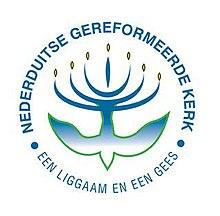
NG Kerk is a branch of the Dutch Reformed Church of Netherlands (Dutch: Nederlandse Hervormde Kerk, abbreviated as NHK)
When the Dutch East India Company sent Jan van Riebeeck to start a Dutch settlement at the Cape of Good Hope in South Africa in 1652, most of the company’s employees were members of the Dutch Reformed Church
NKST has ties with Dutch Reformed Church of South Africa while the Dutch Reformed Church of South Africa has ties with the Dutch Reformed Church of the Netherlands.
The doctrine and way of life of the 3 churches is similar in many ways. For example they all like strict adherence to Bible teachings, among other similarities.
In 1960, due to Nigeria’s policy against apartheid in South Africa, the South African missionaries were no longer tolerated in Nigeria and had to leave.
In their place the Christian Reformed Church (CRC) Mission of North America in US gave it support until around 1985. The US church still had ties with NKST.
There was a move to merge NKST with the Christian Reformed Church of Nigeria that was under the CRC Mission. NKST leaders resisted the move.
In 1957 NKST became autonomous. It was formally organized so initially with its first four indigenous, Nigerian, pastors.
A full translation of the Bible into Tiv was completed and dedicated on 4th November 1964.

As one of the first churches in Benue State, NKST has a strong appeal and influence even among non-members. It’s gospel songs, doctrine and messages are a huge attraction to different categories of people.
